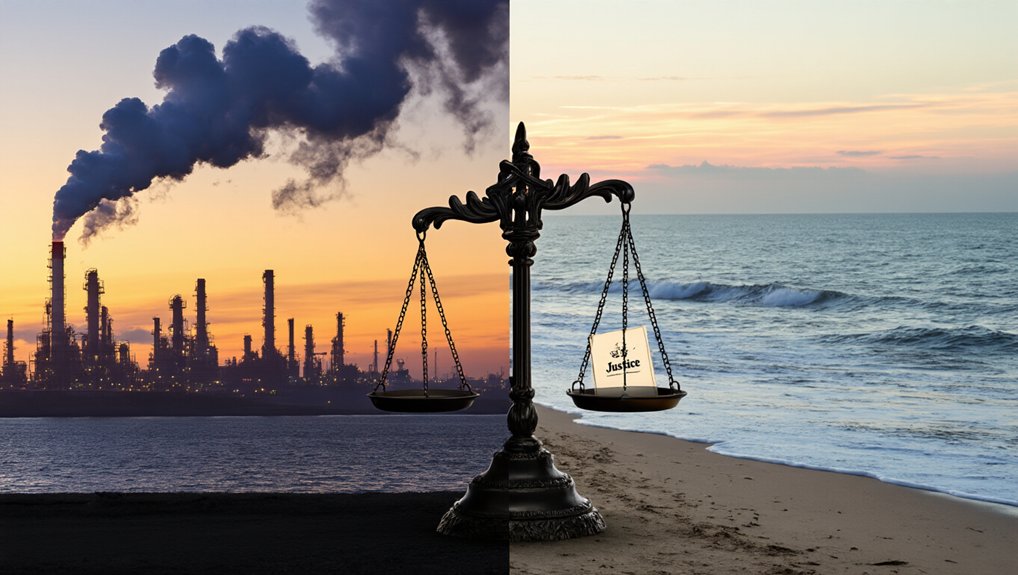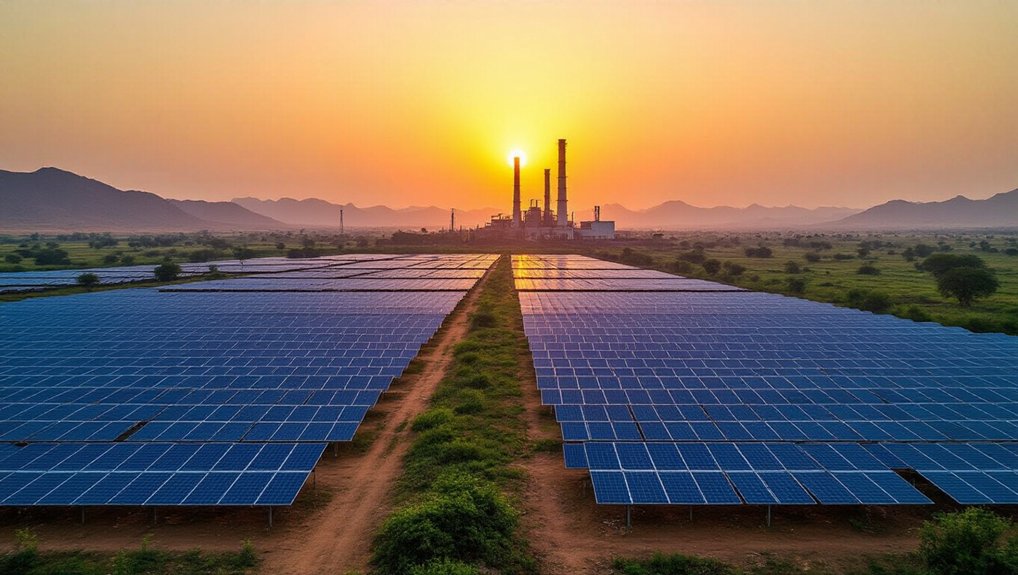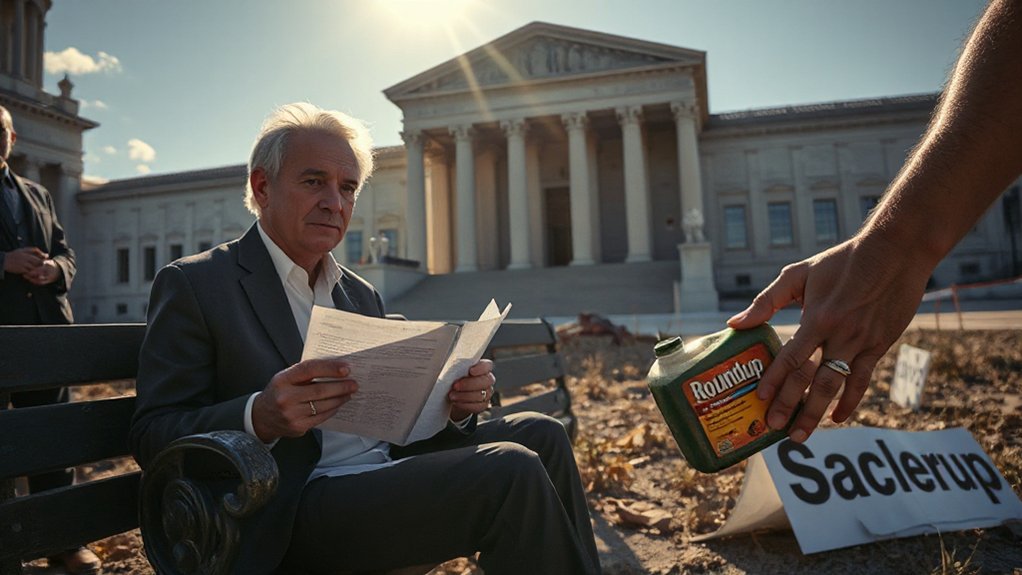When exactly did “free speech” become Big Oil‘s favorite shield against accountability? It’s a pattern we’ve seen play out in courtrooms across America. Oil giants face accusations of deliberately misleading the public about climate change, and their response is predictable: “It’s just our opinion, protected by the First Amendment.” Convenient.
These companies have turned constitutional rights into corporate armor. When states like Minnesota and California file lawsuits alleging decades of deception, Big Oil doesn’t deny the science—they claim federal preemption and free speech protection. As if somehow the right to speak freely includes the right to mislead consumers about planetary destruction.
Constitutional protections weaponized by corporate giants to shield climate deception from legal consequences.
The evidence against them is damning. Internal documents show these companies understood climate science long before the public did. They knew. Then they funded campaigns to cast doubt on that very science. All while their own research told them otherwise. Not exactly the behavior of honest corporate citizens.
States are getting smarter about their legal strategy. Instead of trying to regulate emissions directly, they’re focusing on consumer protection laws and deceptive practices. Minnesota’s recent court victory proves this approach can work. The case wasn’t about regulating pollution—it was about lying.
The playbook resembles Big Tobacco’s desperate maneuvers from years past. Same tactics, different industry. Different poison.
Since 2017, climate litigation has exploded. Cities, states, environmental groups—they’re all demanding accountability. They want damages, disclosure, and disgorgement of profits. The oil companies are spending billions fighting back.
These lawsuits have dragged industry secrets into the sunlight. Documents that might have stayed buried forever are now public record. People are paying attention. Communities from Hawai’i to Pennsylvania are filing claims on failure to warn grounds, demanding responsibility for the damages caused. Their deceptive practices have contributed to carbon sequestration benefits of forests being undermined through climate change.
The Supreme Court has twice in 2025 declined to intervene in these cases, suggesting an increased likelihood of fossil fuel companies finally facing trials nationwide.
The fundamental question isn’t complicated: Can corporations claim constitutional protection for statements that might have accelerated climate disaster? Is that really what free speech means? Courts will decide. But the court of public opinion? That verdict may already be in.
References
- https://climateintegrity.org/lawsuits
- https://www.corporateknights.com/category-climate/big-oil-faces-massive-monetary-liability-as-u-s-climate-lawsuits-move-forward/
- https://www.desmog.com/lawsuits-climate-accountability-oil-governments/
- https://zerocarbon-analytics.org/archives/energy/latest-trends-in-climate-litigation-against-fossil-fuel-companies
- https://www.gov.ca.gov/2023/09/16/people-of-the-state-of-california-v-big-oil/







